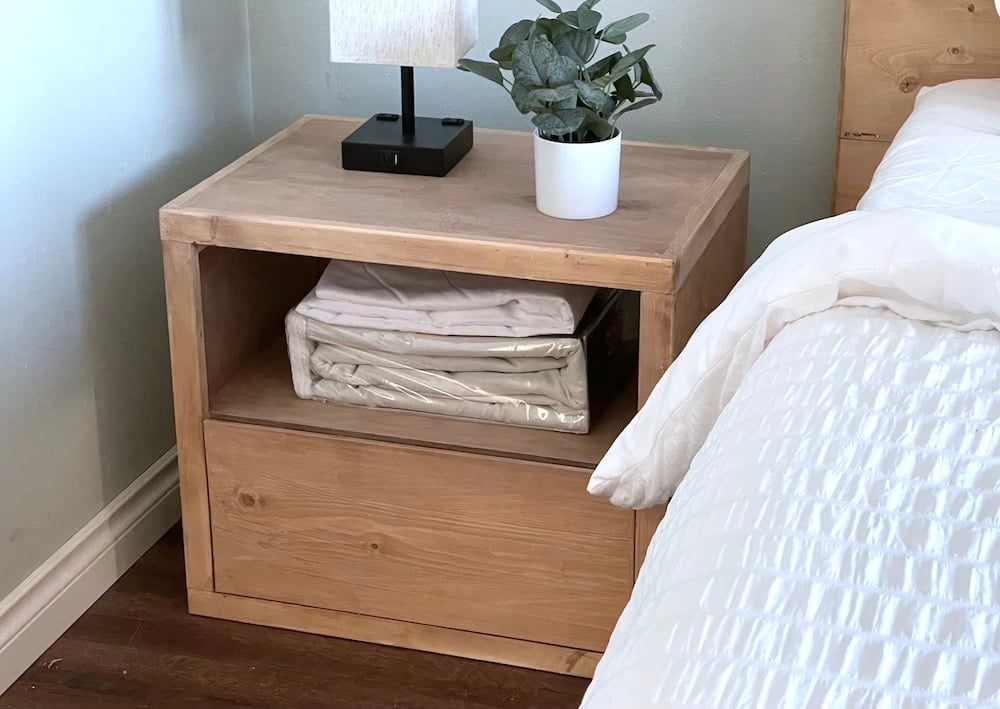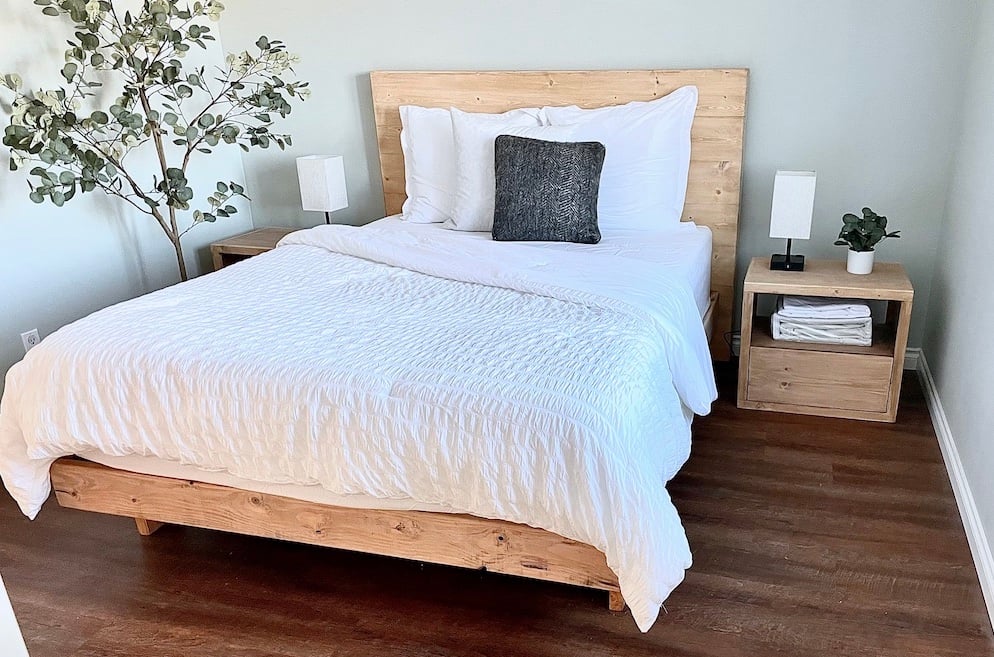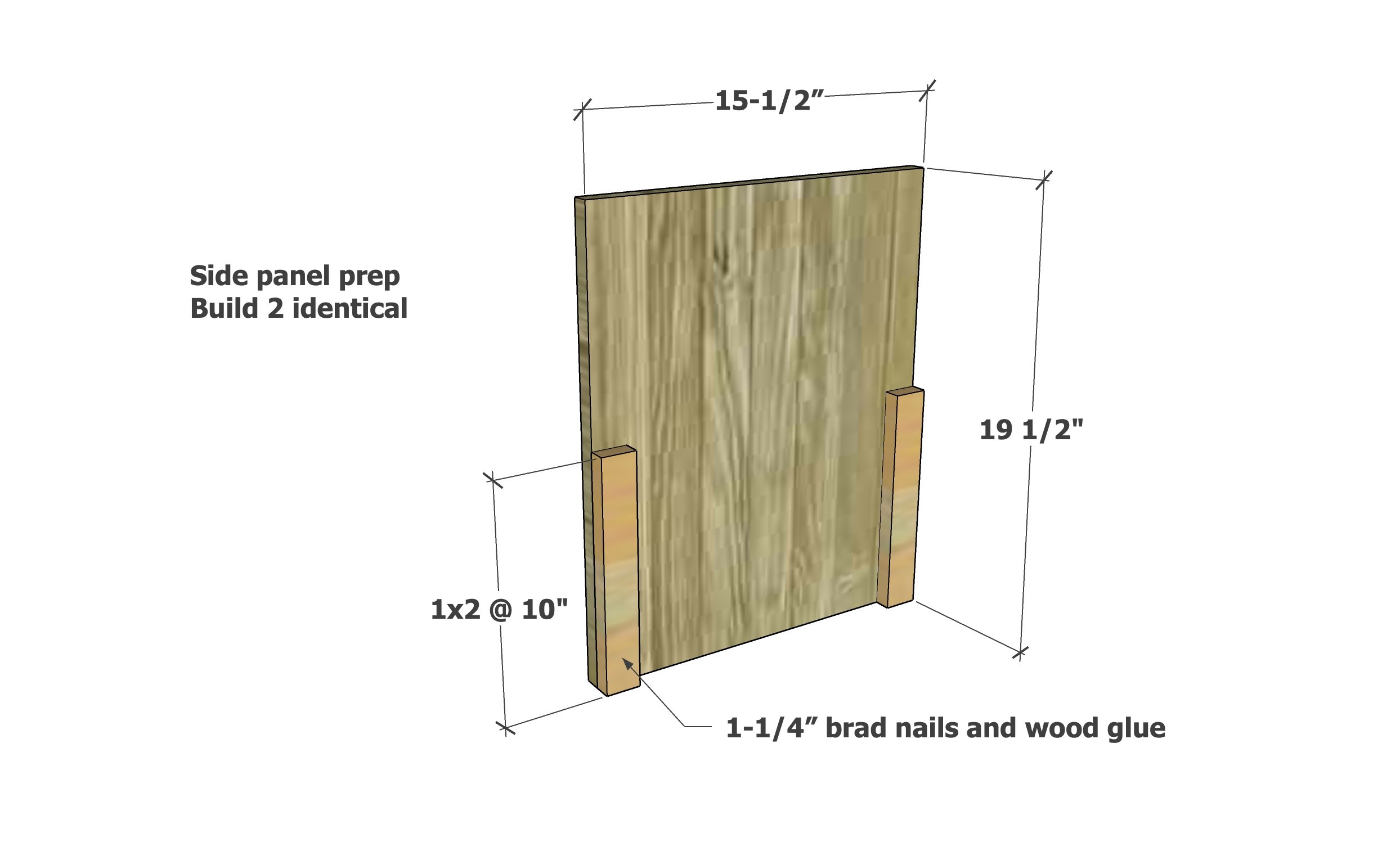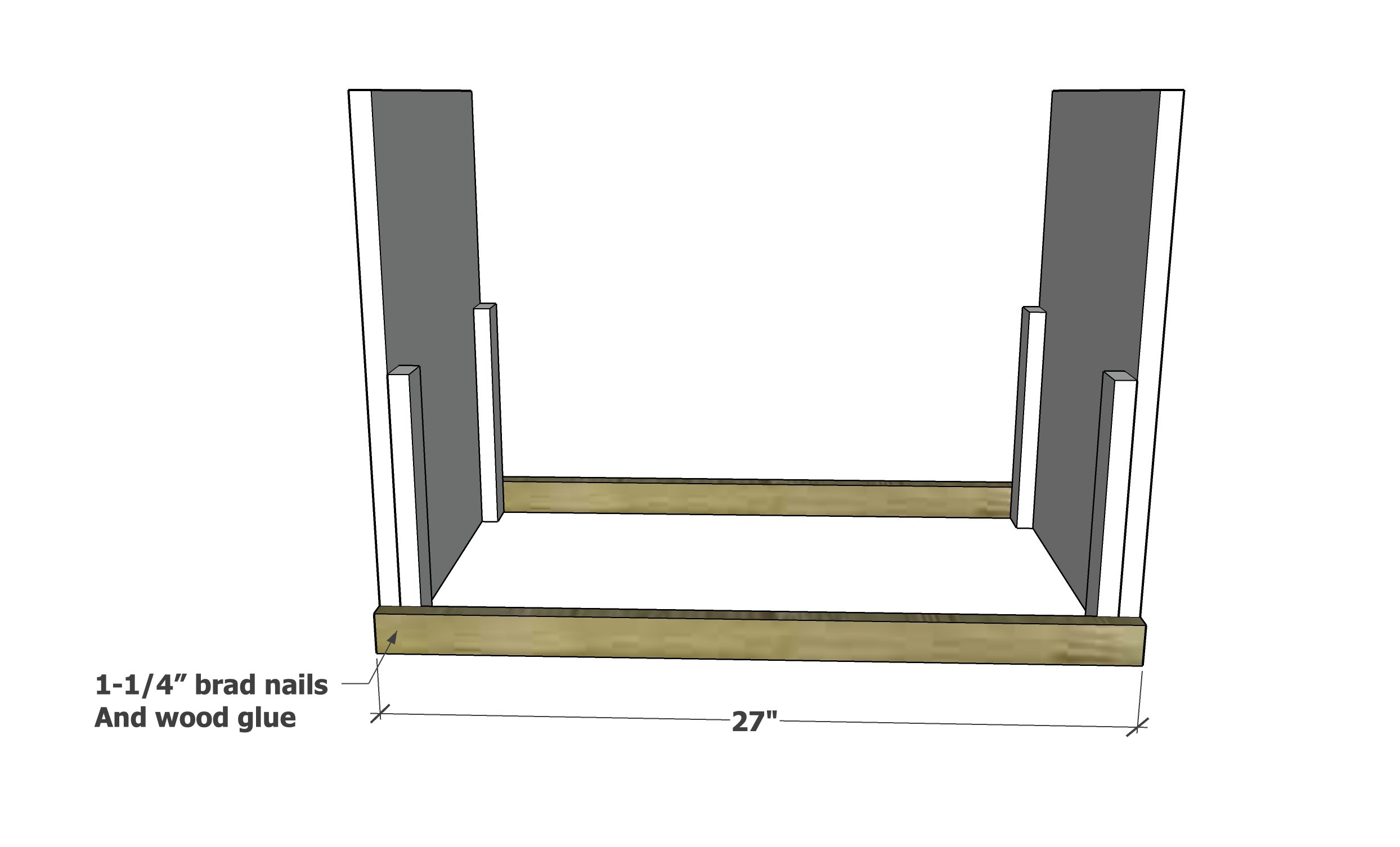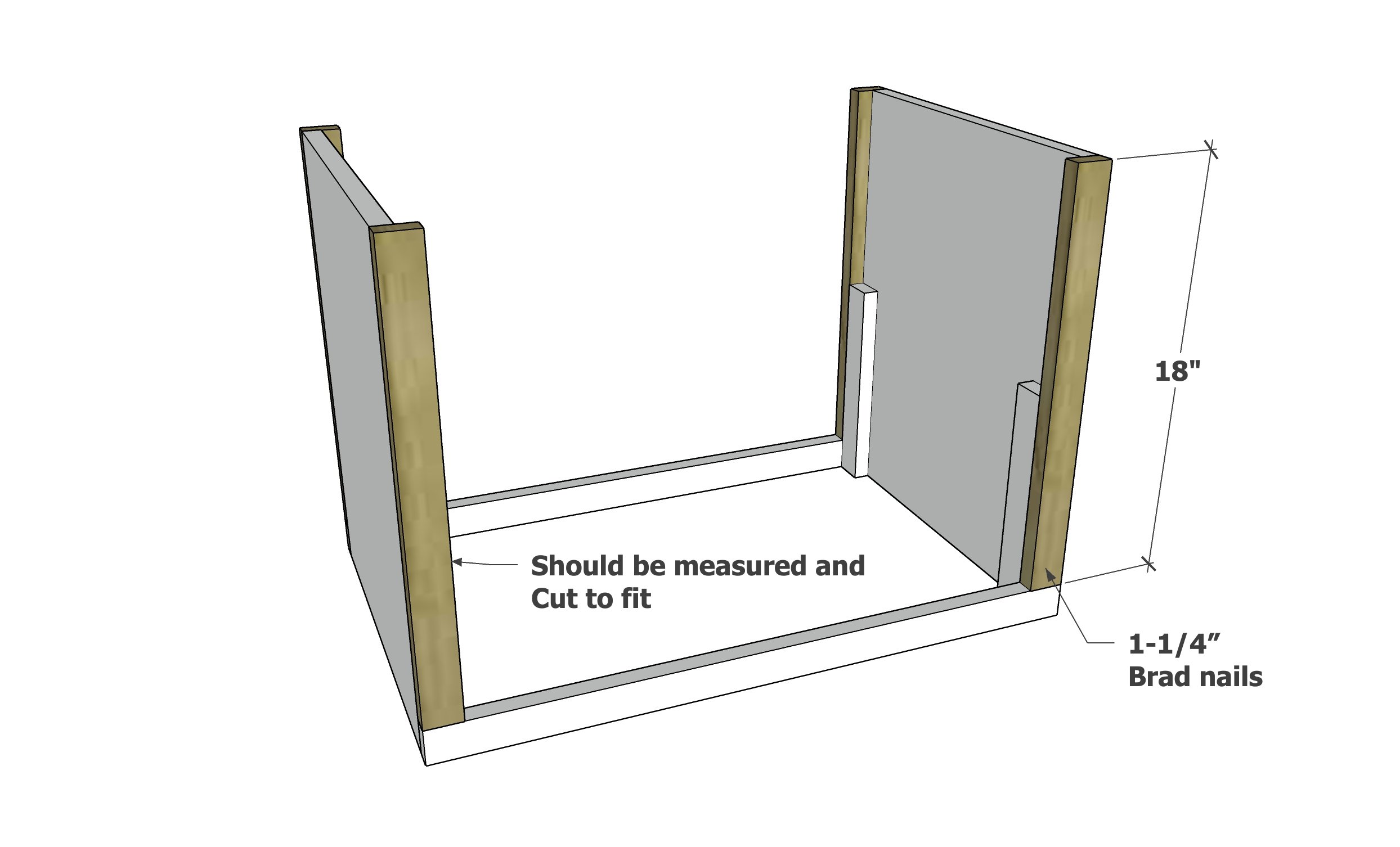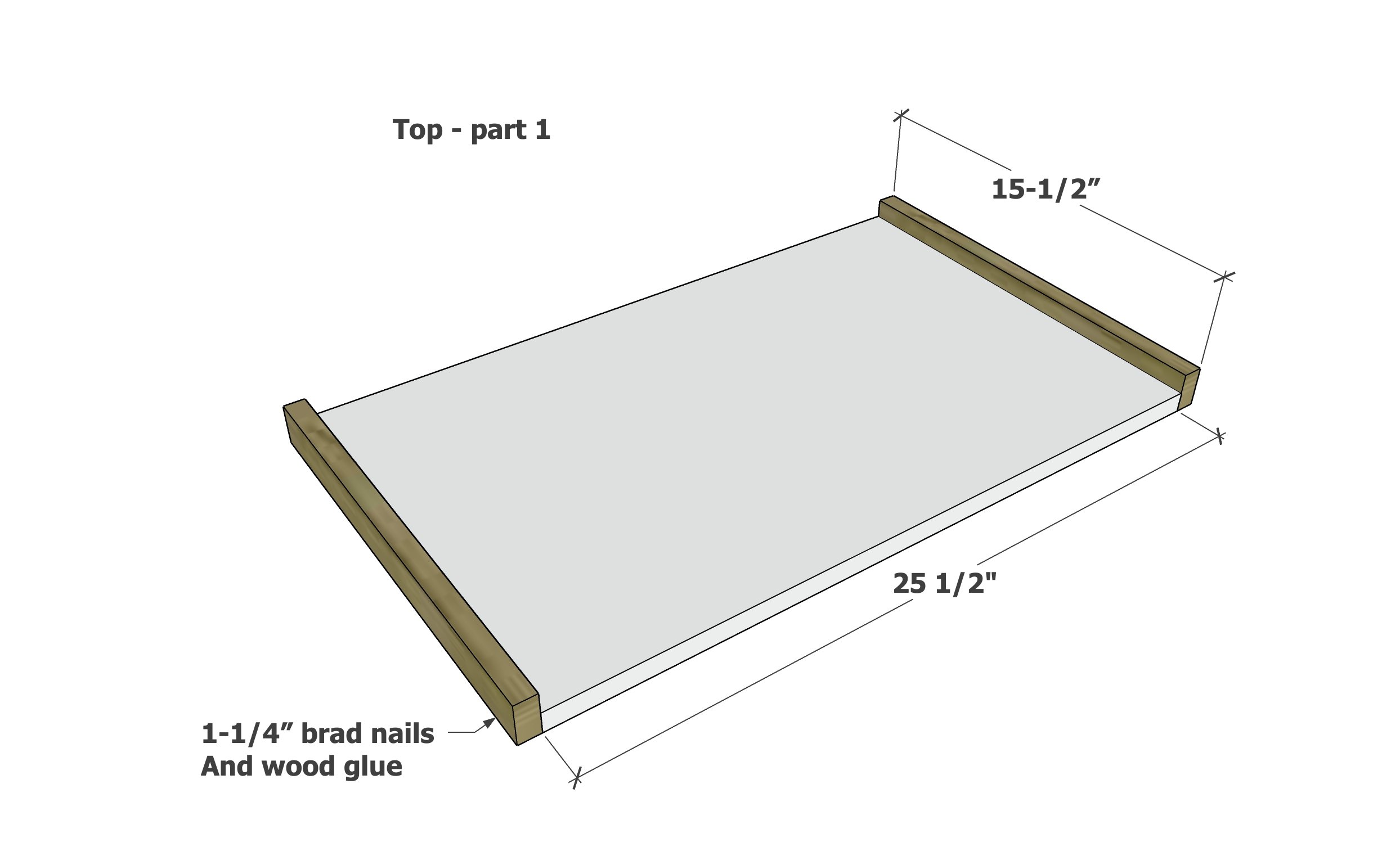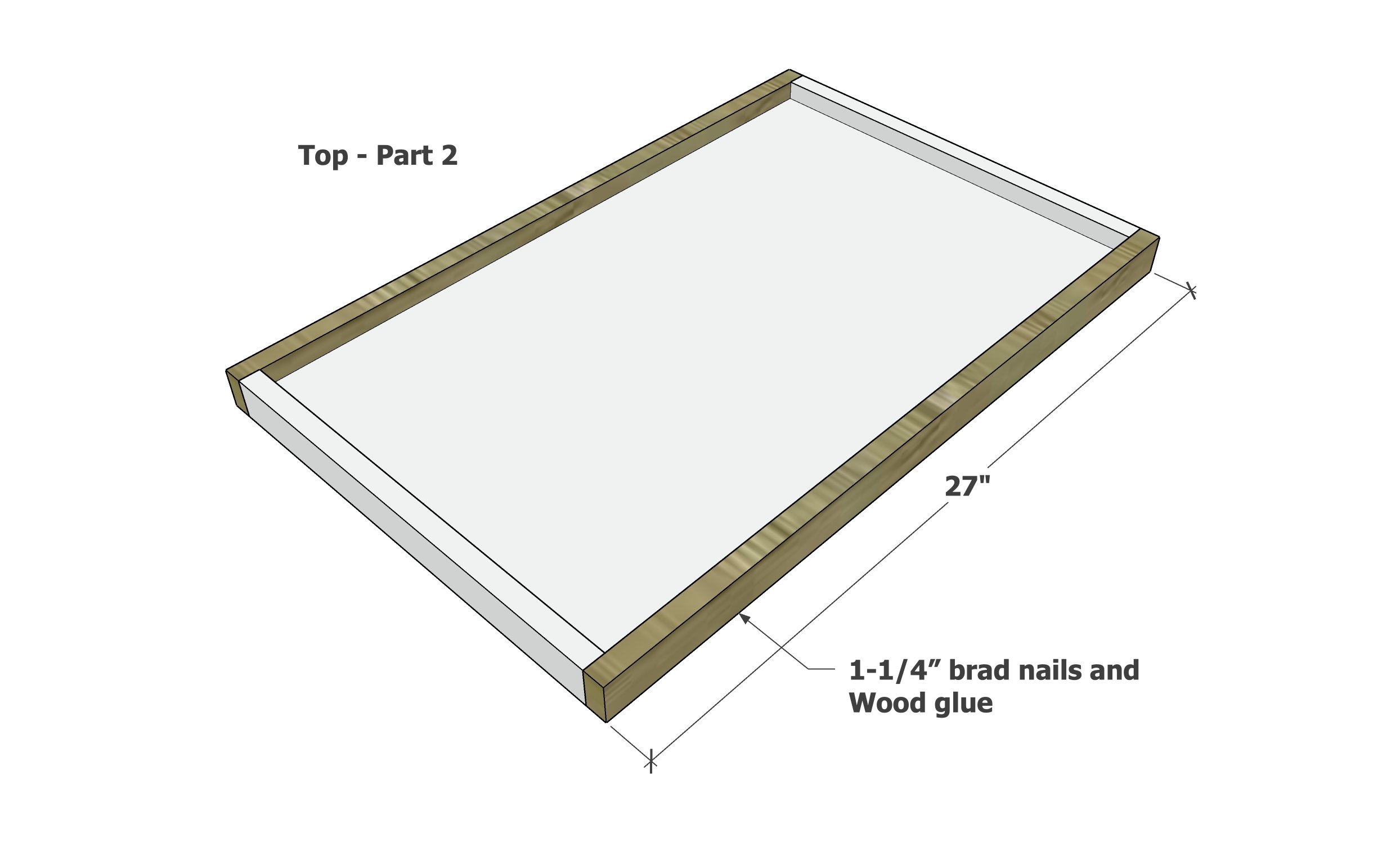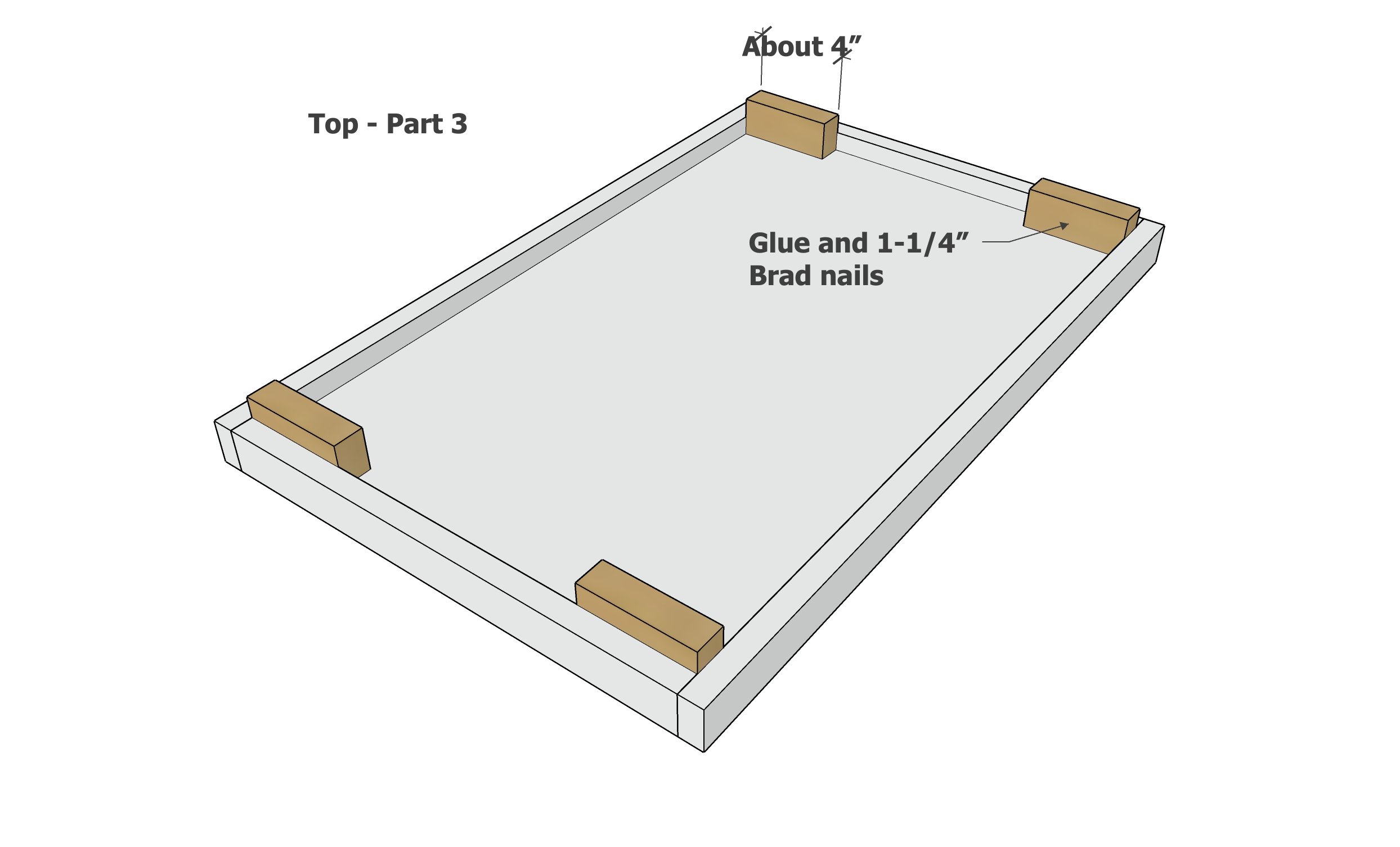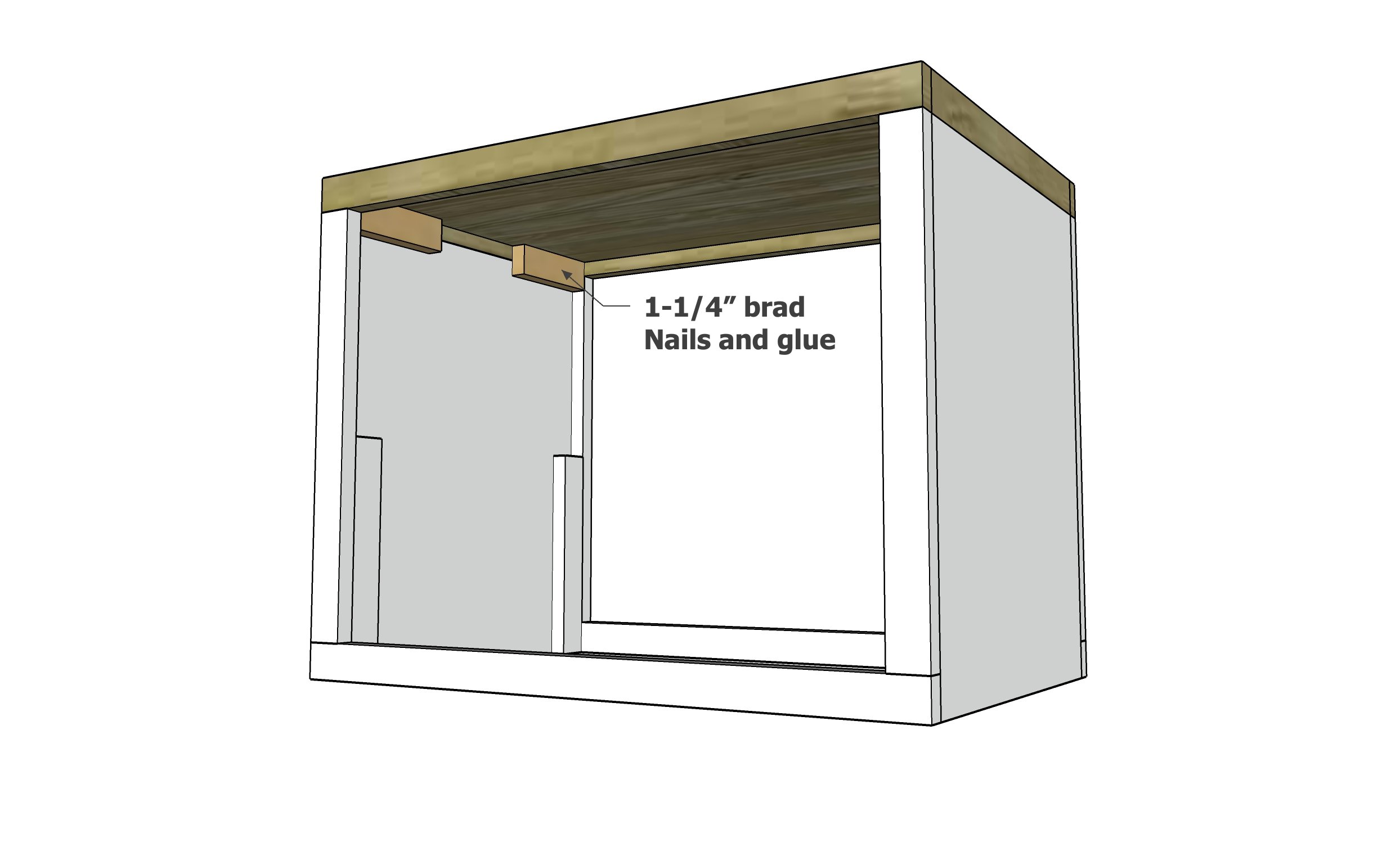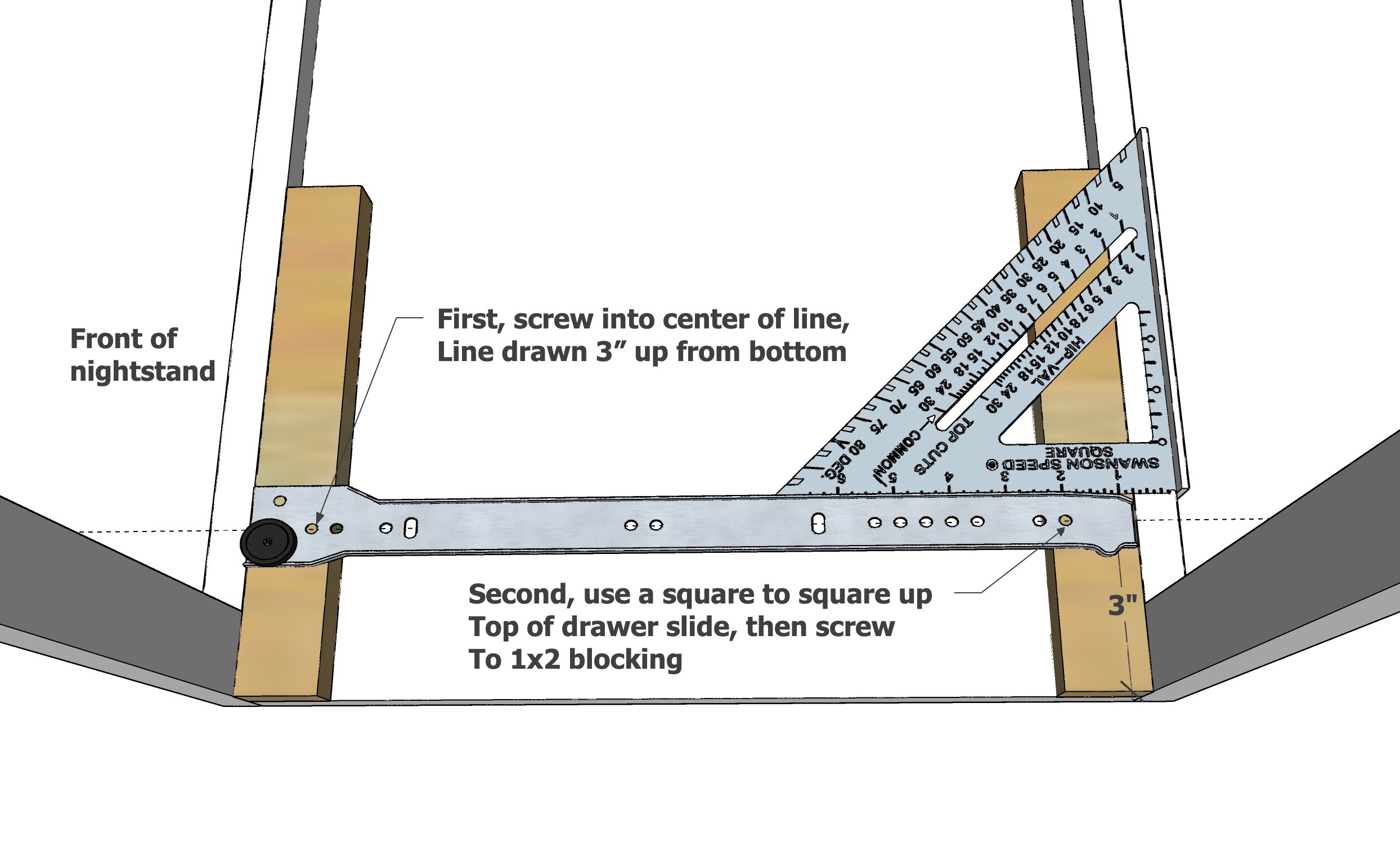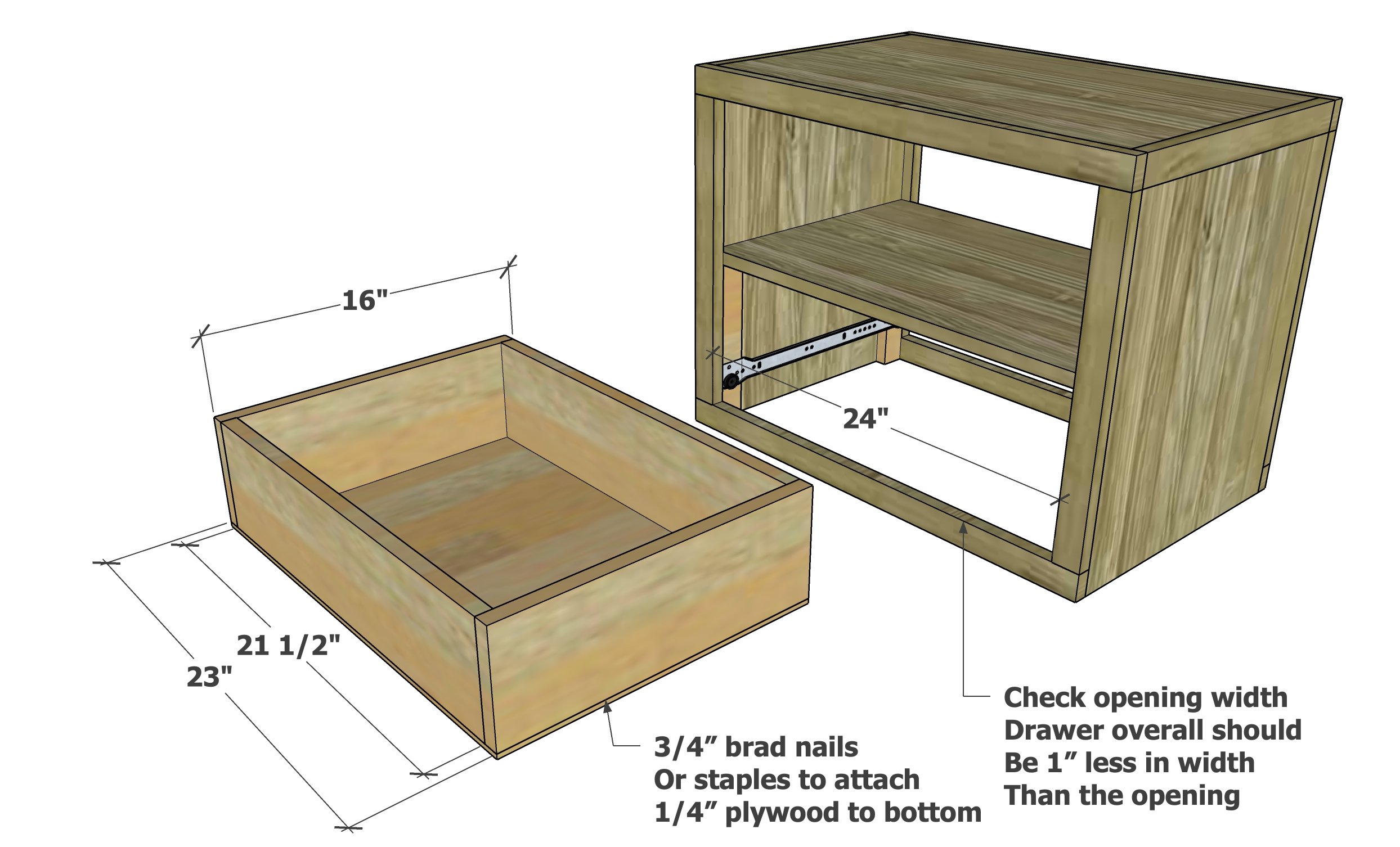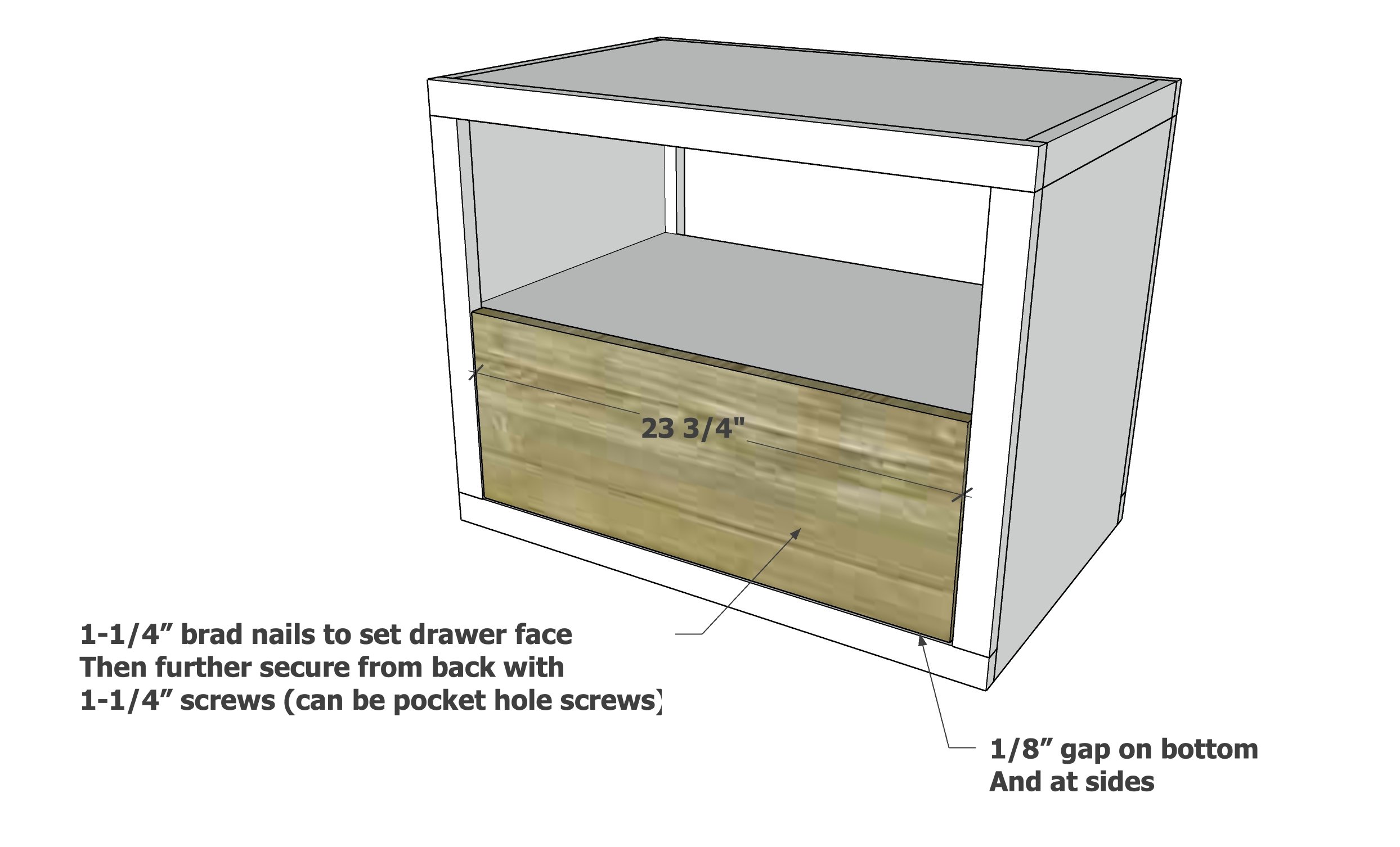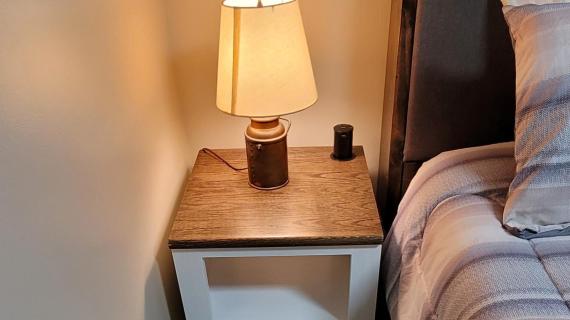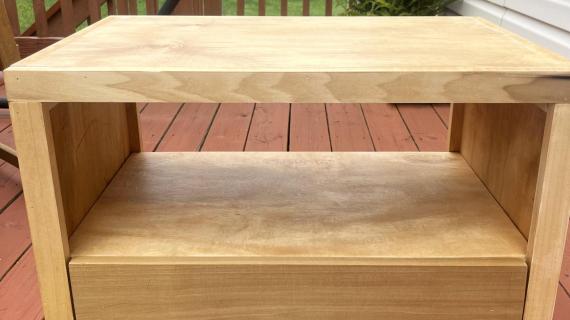
Free plans to build a minimalist modern style nightstand featuring one large drawer and shelf. This is a gorgeous piece, that is easy to build with a miter saw and brad nailer (no pocket holes required). The open back makes it easy to plug in cords, the drawer adds some storage. The case is plywood based but you can also use a pine project panel. Step by step plans include diagrams, shopping list and build video from Ana White.
RELATED: Minimalist Modern Bed Plans, Wide Dresser Plans, Tall Dresser Plans, and Narrow Nightstand Plans
Pin For Later!
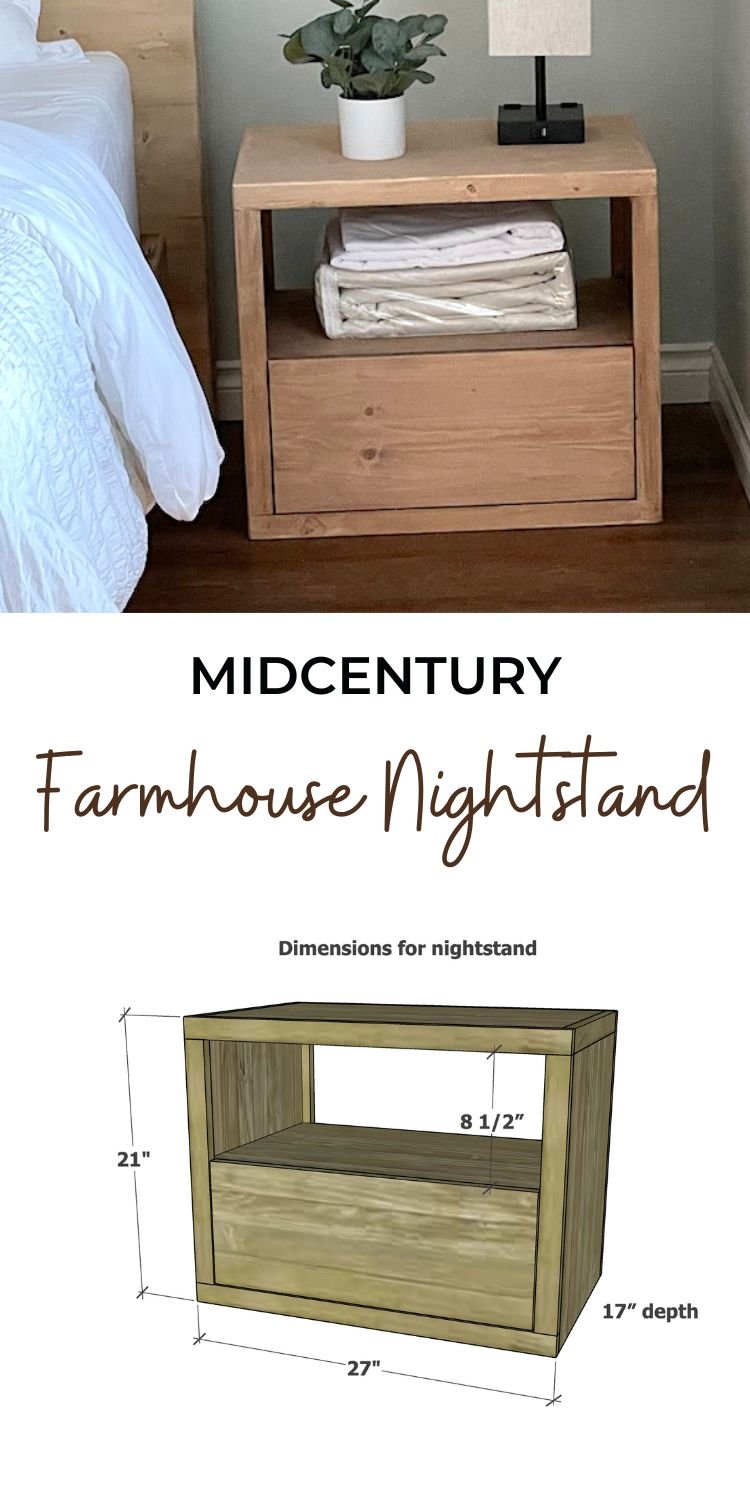
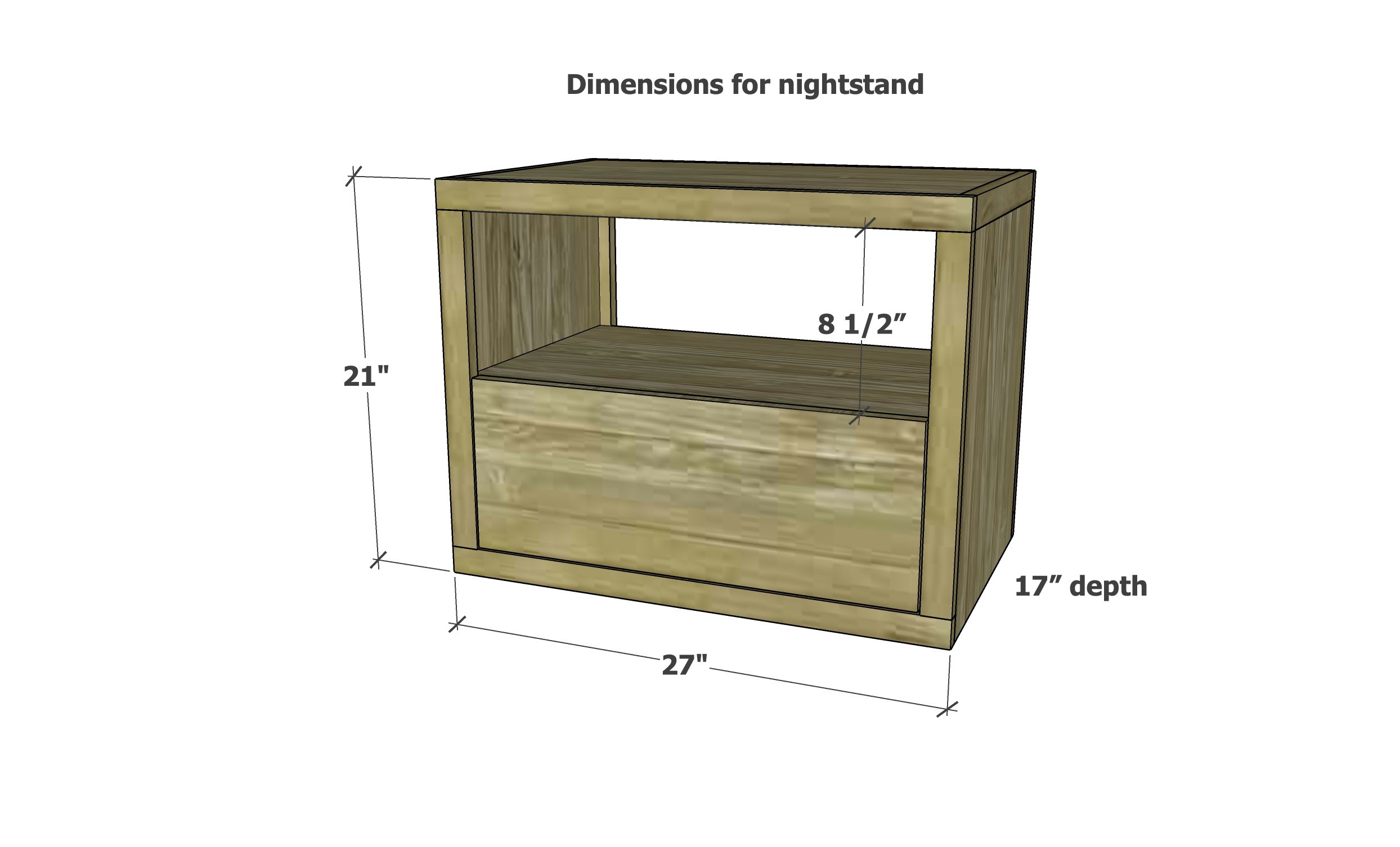
Preparation
Shopping list is for ONE nightstand
- 1 - 3/4" plywood strip, 15-1/2" wide x 8 feet long
- 3 - 1x2 @ 8 feet long
- 1 - 1x6 @ 8 feet long
- 1 - 1x10 @ 24" long
- 1/4" plywood for bottom is 16" x 23"
- 1-1/4" and 5/8" brad nails
- 1 set of 16" white euro drawer slides (bottom corner mount)
Cut List is for ONE nightstand
- 2 - 3/4" plywood @ 15-1/2" x 19-1/2" - side panels
- 2 - 3/4" plywood @ 15-1/2" x 25-1/2" - top and shelf
- 4 - 1x2 @ 10" - spacers for the drawer slides
- 4 - 1x2 @ 27" - top and bottom trim (rails)
- 4 - 1x2 @ 18" - vertical trim (stiles)
- 2 - 1x2 @ 15-1/2" - side trim on (side rails)
- 4 - 1x2 @ 4" - inside cleats
- 2 - 1x6 @ 16" - drawer sides
- 2 - 1x6 @ 21-1/2" - drawer front and back, should be measured and cut to fit, 2-1/2" less than opening
- 1 - 1/4" plywood @ 16" x 23" - bottom of drawer
- 1 - 1x10 @ 22-3/4" - drawer face
Instructions
Step 1
Step 7
Step 9
Build the drawer box to fit.
The sides are the same length as the drawer slides (16").
The front and back of the drawer slides should be 2-1/2" less than the opening (assuming drawer slides require 1/2" clearance each.
I attached the drawer box together with 1-1/4" brad nails and the bottom with 5/8" brad nails.
Make sure the drawer slides nicely. Adjust slides if necessary.
Set the middle shelf on top of the 1x2s and attach with 1-1/4" brad nails.
Follow up with a fine grit sandpaper.
Remove all sanding residue.
After this dried, I lightly sanded with fine sandpaper. Then clear poly on outside edges.



